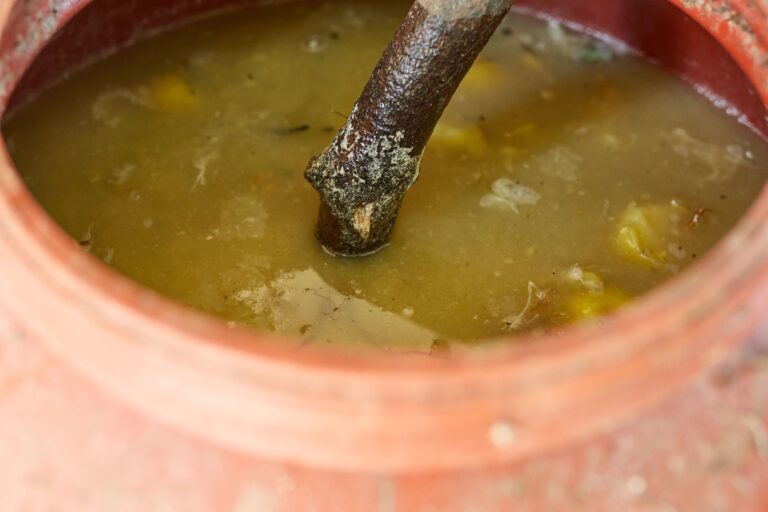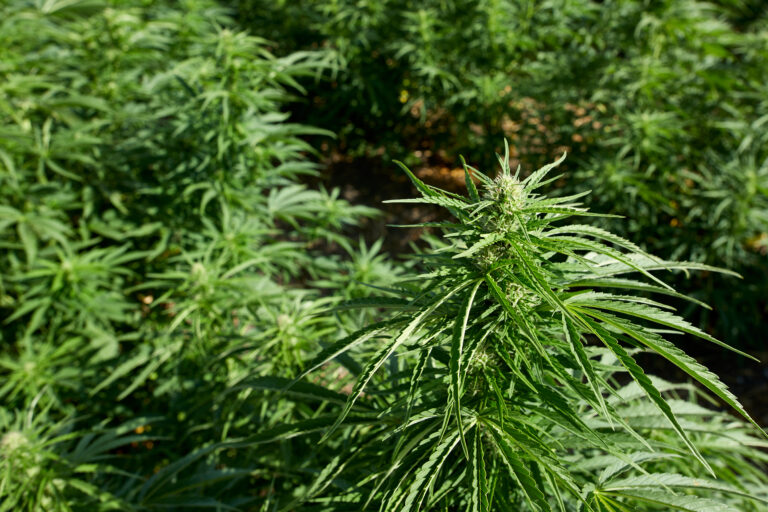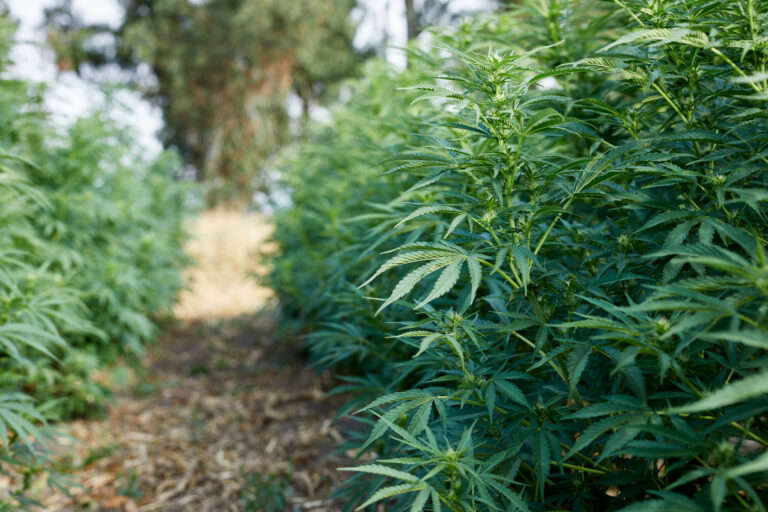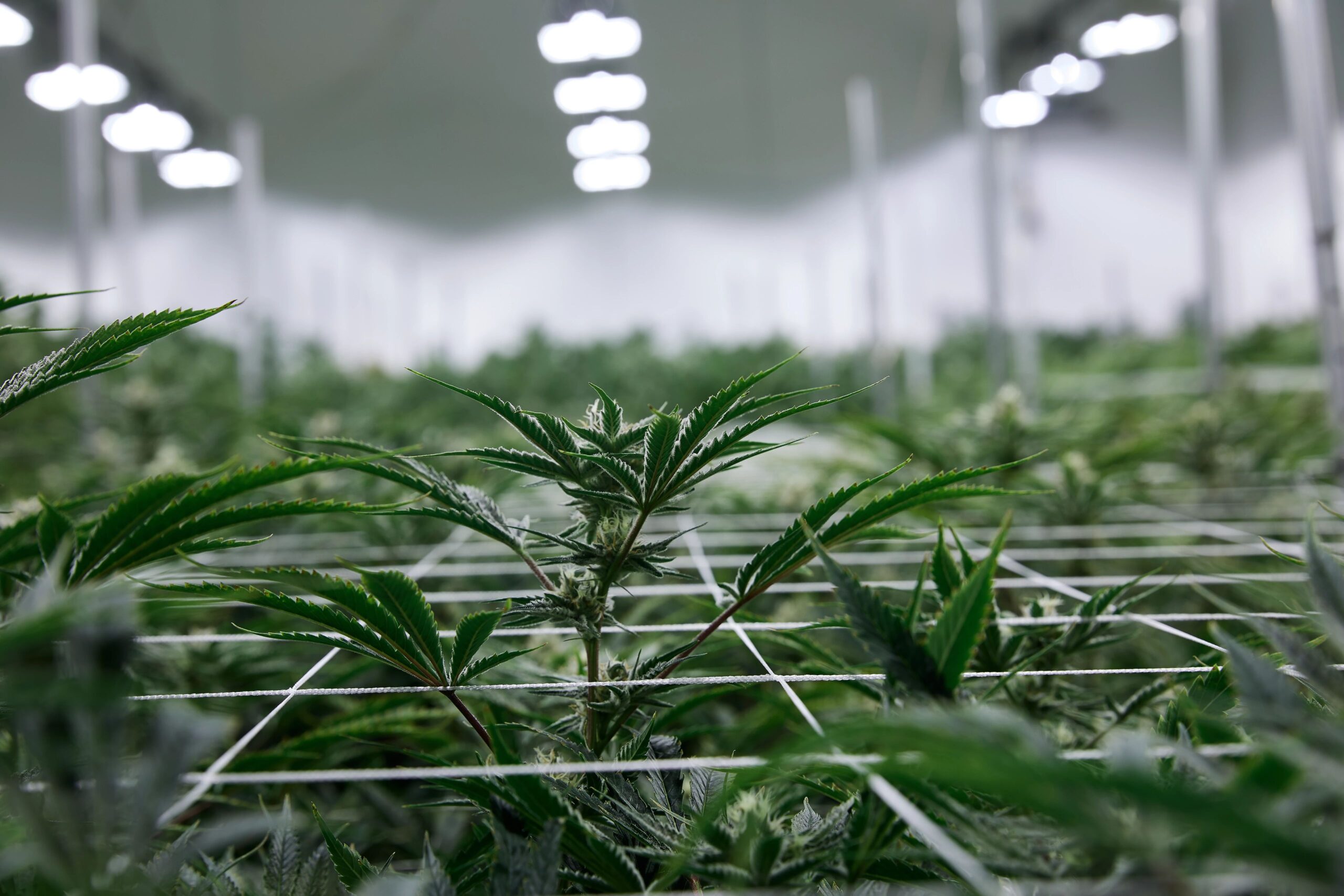A plentiful harvest overflowing with healthy buds is the goal of most cannabis cultivators. Light, oxygen, and water are three of the keys to reaching that goal, but fertilizer is just as essential to increasing bud growth. If you're new to cannabis cultivation, learn why fertilizer is so important for cannabis plants, along with how and when to use it to boost your flower production and increase yields.
What is fertilizer?
Fertilizer is plant food made from natural or industrially produced substances that growers apply to soil and plants to optimize growth. Natural fertilizer can be made from fermented fruits, fish meal, bat guano, and many other natural materials.
 Photo by: Gina Coleman/Weedmaps
Photo by: Gina Coleman/WeedmapsImage lightbox

In addition to cannabis, the nutrients in fertilizers can benefit many different plants, including potted houseplants, flowers like roses and hydrangeas, and food crops like tomatoes.
Why is fertilizer important for cannabis plants?
Essential plant nutrients present in fertilizers may help cannabis cultivators raise a healthier crop of plants with more abundant leaf growth and, eventually, flowers.
If you want to grow big buds, the right cannabis fertilizer can help you reach that objective. Without a good fertilizer, the buds on weed plants may not reach their full growth potential. Cannabis plants grown with fertilizer will probably be healthier overall, which can translate to a more pleasant and full-bodied flavor in the buds.
What nutrients do cannabis plants need?
A cannabis garden needs a combination of essential nutrients and trace, or micro, nutrients. Like all other plants, cannabis needs carbon dioxide and oxygen, which it obtains through airflow, and hydrogen, which it gets from water.
 Photo by: Gina Coleman/Weedmaps
Photo by: Gina Coleman/WeedmapsImage lightbox

In addition to those important compounds, primary, secondary, and micronutrients will round out a robust fertilizer, all of which work together to produce a healthy weed plant.
The primary nutrients that cannabis plants need to thrive:
- Nitrogen
- Phosphorus
- Potassium
Secondary nutrients:
- Sulfur
- Calcium
- Magnesium
Micronutrients:
- Zinc
- Manganese
- Iron
- Boron
- Chloride
- Cobalt
- Molybdenum
- Silicon
How and when should you fertilize cannabis plants?
Cannabis plants need different levels of nutrients depending on their growth stage. In general, marijuana fertilizer should be applied at least once weekly, along with an ample supply of pH-balanced water.
As a rule of thumb, the ideal pH balance for cannabis grown in soil is between 6.0 and 6.8. Hydroponic growers should keep their water pH between 5.5 and 6.5. On average, cannabis plants need a gallon of water each day per pound of anticipated flower. Plant growth is equally dependent on the work of fertilizers and nutrients.
How to apply fertilizer during different stages of growth:
- Seedling: Minimal or no fertilizer. You may want to wait until your plants have sprouted a few leaves before administering the first dose of primary NPK fertilizer.
- Vegetative: For Week 1, use an NPK ratio of 2:1:2 — that's two parts nitrogen, one part phosphorus, and two parts potassium. By Week 7, consider increasing the NPK ratio to 10:5:7, followed by a 1:1:1 ratio in the late vegetative phase.
- Flowering: At this juncture, stop feeding nitrogen to the plants and focus on elevating the phosphorus and potassium levels. It is useful to fertilize plants during the early flowering stage but not as effective in the latter weeks after true buds have formed.
For even better results, research the best feeding schedule for the specific weed strain you are growing.
What is the best type of weed fertilizer?
If you're maintaining a home garden, you can use synthetic or natural fertilizers. Synthetic fertilizers tend to work faster than organic fertilizers and may be less time-consuming, making them a good choice for growers who prefer a simpler and quicker method. However, if you have the space and time to make your own natural fertilizer, you have many options, with the added benefit of knowing and controlling exactly what goes into your plants.
 Photo by: Gina Coleman/Weedmaps
Photo by: Gina Coleman/WeedmapsImage lightbox

Most common ingredients in organic and natural cannabis fertilizers:
- Worm castings
- "Good" bacteria and fungi from probiotics
- Forest humus
- Fish meal
- Blood meal
- Bat guano
- Compost tea — a mix of the above elements, in addition to kelp meal and molasses
- Biochar — a rich blend of carbon and charcoal
Integrating these ingredients into regular soil can help you create a super soil with a wealth of primary, secondary, and trace nutrients. While you can purchase commercial fertilizers in liquid or powder form, natural materials often provide the most powerful nutrients.
Bottom line
Ultimately, the best fertilizer for cannabis is the one that works for your schedule, budget, and level of desired effort. Growing cannabis requires a delicate balance of the right nutrients, so make sure you give your plants the attention they need and they will reward you with delicious, healthy buds.
Written by Lesley Nickus | Featured image by Gina Coleman/Weedmaps




